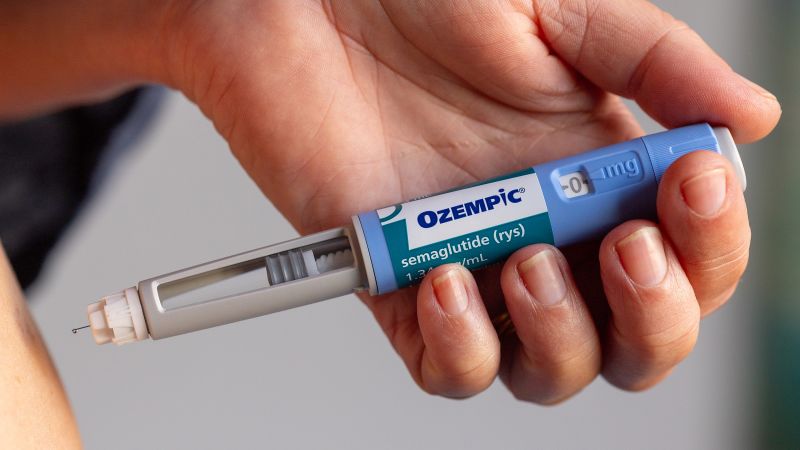As the holiday season approaches, many individuals partake in festive traditions such as baking cookies for Santa and attending jovial cocktail parties. However, amidst the merriment, a noteworthy trend among adults using popular medications for diabetes or weight management emerges. Some these individuals contemplate skipping doses of their medications for a week or two to indulge more fully in holiday treats, evade any unpleasant side effects, or alleviate the financial burden that accompanies the holiday season.
Medical professionals, like Dr. Judith Korner from New York Presbyterian/Columbia University Irving Medical Center, observe this phenomenon firsthand. She recognizes that patients frequently consider pausing their medications during holidays, especially when anticipating trips or vacations. Contrarily, some patients may find themselves in a situation where their doctor opts to maintain their current dosage rather than escalating it during this indulgent period. Dr. Alyssa Dominguez, an endocrinologist from Keck Medicine of USC, echoes this sentiment, stating that many patients inquire about temporarily halting their medications during festive occasions, coupled with questions about postponing new prescriptions or increasing dosages.
The main concern with skipping medicine lies in the side effects associated with many diabetes and weight loss medications, such as nausea, stomach discomfort, constipation, or diarrhea. For someone about to embark on a long flight or vacation, the avoidance of these symptoms is understandable. Additionally, for patients who must pay out-of-pocket, the cost of these medications can range from hundreds to potentially $1,000 per month, prompting them to consider a brief hiatus during a financially taxing time of year.
Common medications in this category include GLP-1 receptor agonists and dual agonists, with examples like Ozempic, Wegovy, Mounjaro, and Zepbound. These are generally administered via weekly injections, functioning by mimicking hormones responsible for regulating blood sugar levels and appetite. Upon initiation of these treatments, patients are usually prescribed a low dosage, which is increased over time. However, the effects of temporarily stopping medication depend heavily on the reasons behind the treatment. For instance, someone using these medications primarily to control blood sugar levels due to type 2 diabetes may experience spikes in glucose levels. Conversely, individuals focusing on weight loss would likely lose appetite suppression, potentially leading to increased food consumption and associated overeating risks.
A crucial aspect to remember is that skipping doses might not lead to an immediate drop in the medication’s effectiveness, as mentioned by Dr. Korner. There can be residual effects even after missing a dose, particularly because these medications can remain in the system for some time. Consequently, regarding missed doses, the prescribing information for Ozempic suggests that if a patient forgets a dose, they should take it within five days; beyond that time, the next dose should be administered as scheduled. Similar guidelines apply to other medications like Mounjaro and Wegovy.
Moreover, healthcare providers recommend against skipping doses solely for indulgence during holiday festivities. Experts like Dr. Deborah Horn from UTHealth Houston stress that it’s typically manageable to miss a couple of weeks of medication without reverting to lower doses. However, the risk of side effects increases significantly if someone bypasses dosage for longer than two weeks, even if they did not experience side effects during the initial treatment escalation.
For many patients, devising a strategy to maintain medication routines during the holidays proves beneficial. Dr. Eduardo Grunvald of UCSD highlights that maintaining regular medication helps patients navigate tough holiday seasons. Providers often offer guidance on how to stay on medications while still relishing favorite foods by opting for smaller portions.
As holiday festivities often involve a plethora of tasty, albeit rich, foods, patients are encouraged to manage their food choices cautiously. Symptoms like nausea can worsen following greasy or heavy food consumption, and staying close to familiar dietary habits might be requisite to avoid uncomfortable side effects. Experts recommend complementing rich holiday dishes with fiber or protein to mitigate gastrointestinal distress, along with possibly avoiding alcohol during holiday gatherings, given that combining it with certain medications can exacerbate side effects or lead to poor decision-making regarding food intake.
Should patients take a break from their medications and notice side effects upon resuming, it’s advised they consult their healthcare providers for guidance and possibly anti-nausea medications. Finally, it’s important to remember that the essence of the holiday season goes beyond food. Engaging in joyful, non-food-centric activities like gift wrapping, caroling, or ice-skating can also enrich the holiday experience. As Dr. Korner aptly puts it, the holiday’s true spirit stems from connecting with family and friends, transcending mere culinary indulgence.












